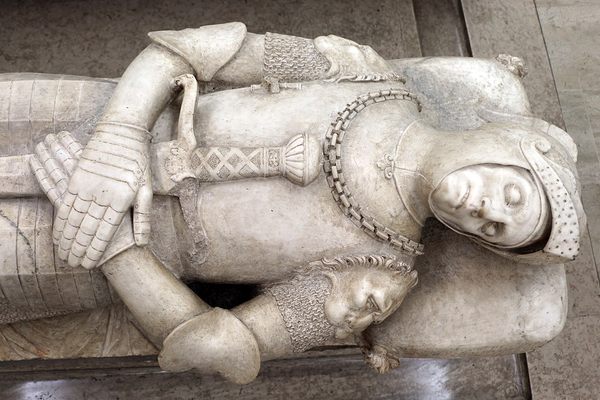Dante's Tomb
Italian poet Dante Alighieri is entombed in this small mausoleum in Ravenna, and his hometown of Florence has never been too happy about it.
Much to the dismay of the jealous Florentines, Ravenna is home to the tomb holding the actual bones of the great poet Dante Alighieri. That fancy “tomb” in Florence? Without a body, it’s just a memorial.
Dante died in Ravenna in 1321, where he was in exile, just 90 miles from his native Florence. But since his works often included thinly veiled references to powerful people of the time, he wasn’t really welcome in Florence anymore, so he was interred there in Ravenna.
It took a couple of hundred years, but when enough time had passed to heal old wounds — and his work proved to be beloved masterpieces — Florence decided they wanted their poet back, even building a beautiful memorial for his remains. In 1519 Pope Leo X ordered the bones to be transferred to Florence, but the papal order was refused. Instead, an empty coffin was sent back. The Franciscan monks who had charge of Dante’s remains had secretly removed them from the tomb, and hidden them in their monastery.
It’s not clear exactly when, but at some point the remains were moved again, and they ended up in the wall of the church near the tomb. It wasn’t until 1865 that the hidden bones were found during some renovations, almost 350 years after they had been quietly whisked away.
The mausoleum in Ravenna is a simple marble structure with the poet’s tomb inside. It actually seems more fitting to look for Dante in an out-of-the-way place like a little side street in Ravenna. There at least he’s not bothered by so many tourists.
Know Before You Go
The tomb is connected to the Basilica di San Francesco in Ravenna. The small marble mausoleum is down at the end of a narrow side street and is easy to miss - so follow your GPS to find it. Besides being the final resting place of Dante, Ravenna also has some of the most perfectly preserved Byzantine mosaics outside of Istanbul. There is now a metal gate preventing access to the interior of the tomb.



















Follow us on Twitter to get the latest on the world's hidden wonders.
Like us on Facebook to get the latest on the world's hidden wonders.
Follow us on Twitter Like us on Facebook